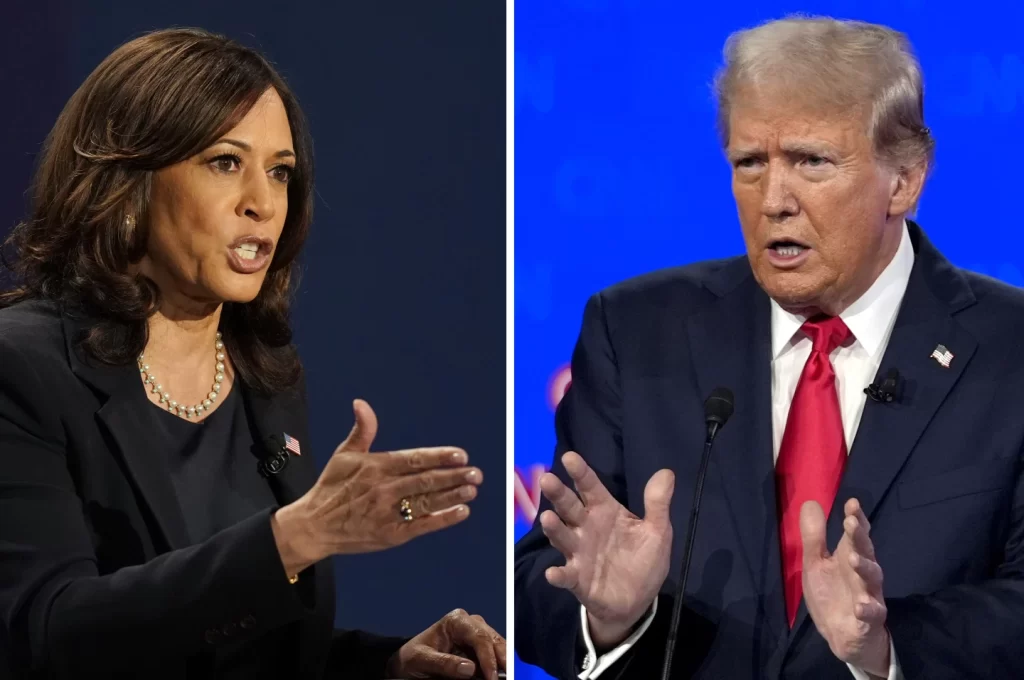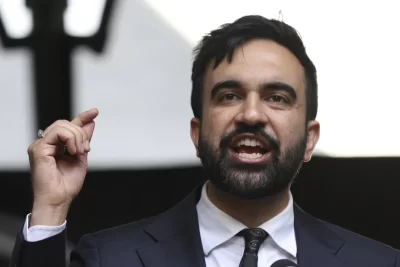
ATLANTA— From her earliest campaigns in California to her serving as President Joe Biden’s running mate, Kamala Harris has honed an aggressive but calibrated approach to debates.
She tries to blend punch lines with details that build toward a broader narrative. She might shake her head to signal her disapproval while her opponent is speaking, counting on viewers to see her reaction on a split screen. And she has a go-to tactic to pivot debates back in her favor: saying she’s glad to answer a question as she gathers her thoughts to explain an evolving position or defend a past one.
Tuesday’s presidential debate will put the Democratic vice president’s skills to a test unlike any she’s faced. Harris faces former President Donald Trump, the Republican nominee, who will participate in his seventh general election debate since 2016 for an event that will be seen by tens of millions of viewers just as early voting in November’s election starts around the country.
People who have competed against Harris and prepared her rivals say she brings a series of advantages to the matchup, including her prosecutorial background juxtaposed with Trump being the first U.S. president convicted of felony crimes. Still, Harris allies warn that Trump can be a challenging and unpredictable opponent who veers between policy critiques, personal attacks, and falsehoods or conspiracy theories.“She can meet the moment,” said Marc Short, who led Republican Vice President Mike Pence’s debate preparation against Harris in the fall of 2020. “She has shown that in different environments. I would not underestimate that in any way.”
Julian Castro, a Democrat who ran for president against Harris in the 2020 primary, said Harris blended “knowledge, poise and the ability to explain things well” to stand out during crowded primary debates.
“Some candidates get too caught up with trying to be catchy, trying to go viral,” Castro said. “She’s found a very good balance.”
Balancing narrative and detail
A former Harris aide, who spoke on condition of anonymity to talk about her approach, said the vice president views the events like a jury trial she would have led when she was district attorney in San Francisco or querying a judicial nominee on Capitol Hill as a U.S. senator. The idea, the former aide said, has always been to win the debate on merit while leaving more casual or piecemeal viewers with key takeaways.
“She understands that debates are about the individual interactions themselves but also about a larger strategy of offering a vision for what your leadership and style looks like,” said Tim Hogan, who led Sen. Amy Klobuchar’s 2020 primary debate preparation.
Kathleen Hall Jamieson, a political communications professor at the University of Pennsylvania, said Harris makes deductive arguments but folds them into a broader narrative — the same way she would talk to jurors.
“She states a thesis and then follows with fact, fact, fact,” Jamieson said.
Jamieson pointed to the 2020 vice presidential debate in which Harris hammered Trump’s handling of the COVID-19 pandemic and the economy, and to her most memorable 2019 primary debate when she skewered Biden for how he had talked about race and institutional racism. She weaved her critique of Biden’s record with her own biography as a young, biracial student in the early era of school integration.
“That little girl was me,” Harris said in a widely circulated quip that punctuated her story about court-ordered busing that helped non-white students attend integrated schools.
“Most people who are good at the deductive argument aren’t good at wrapping that with an effective narrative,” Jamieson said. “She’s good at both.”
Landing memorable punches
Castro said Harris has a good feel for when to strike, a quality he traced to her trial experience. In 2019, as multiple Democratic candidates talked over one another, Harris sat back before getting moderators to recognize her.
“Hey, guys, you know what? America does not want to witness a food fight. They want to know how we’re going to put food on their table,” she said, taking control of the conversation and drawing applause.




